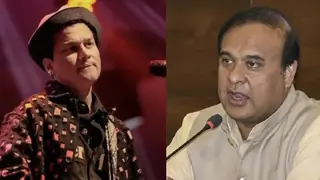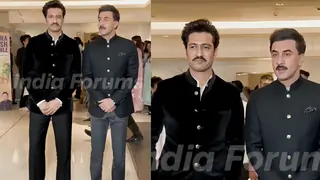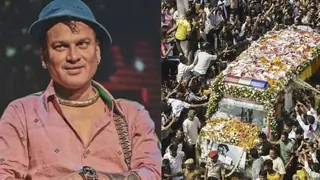Goons assault two Manipuri women in Delhi, cops go slow on case
NEW DELHI: Barely 3km from the spot in Lajpat Nagar where 19-year-old Nido Tania was brutally assaulted on Wednesday, two young women from Manipur were thrashed in full public view by some local goons at Kotla Mubarakpur. It happened four days before the latest outrage and came to light in the aftermath of the death of Tania.
What provoked the men to attack the two hapless women was the fallout of a prank targeting the latter. One of them had kicked a dog in panic, as a reflex action, when she found its leash tied to her boots. It was part of their daily harassment and the men, as if on cue, attacked them.
Tharmila Jajo and Chonmila came face to face with the harsh reality of living in Delhi around 9pm on January 25. Chonmila, who works at a local mall, had gone to a local shop managed by Tharmila to buy some Manipuri herbs. On spotting them, the goons first hurled racial abuses at them. When they didn't react, one of them tied the leash of his pet dog to Chonmila's boots. She got so scared that she started kicking the dog away, afraid that it would bite her.
First, the men were just doubling up in laughter. But when they saw the woman trying to get away from the dog, they suddenly started beating her, accusing her of ill-treating the animal. When Tharmila intervened, two men dragged her out by the hair, virtually pulling her over the counter.
"There are many shops in the same lane but none of the shopkeepers came out to help. We are humans but here every day it's a struggle for basic things," said 25-year-old Tharmila. The girls say the same men, most of them in their late 20s, urinate on the shops' walls and drink in front of the girls. "They pass comments like 'Nepali dhandewali', 'rate kitna hai' etc." In the same narrow lane, with wires dangling on top, there are three more shops - a men's saloon and two grocery shops - but all the owners said they didn't see anything. Danish, who works at the salon, said, "We keep the door closed and scuffles are routine here. We don't know what happened here that night."
When three of the women's friends, also from northeast, rushed to their help, the goons didn't spare them either. "The whole lane was full as people in the neighbourhood came out after hearing the girls' scream. But no one came to help," said Lungshim Shaiza (27), a Naga. Shaiza was badly beaten up as he tried to stop the men from kicking the woman. He apparently fractured two fingers of his left hand. His friend, Phungreingam Jajo (22), from Manipur lost his mobile phone and wallet in the clash.
This wasn't the end of the women's nightmare. When they went to the Kotla Mubarakpur police station, the cops first refused to register an FIR, alleged the women. "From 10:30pm to 6 in the morning, we sat at the police station waiting to get the complaint registered. We called some of the northeast association members who, in turn, called up joint commissioner of police Robin Hibu and the FIR was finally registered," said Mungreiwung W. Mungrei (20), a student. It was, in fact, his statement that was recorded but no arrests were made. He explained that the cops kept telling him how he and his friends were wasting the police's time as they will go back to the hills and not pursue the case.
Two women being assaulted should have been enough for the cops to file a case promptly and investigate but strangely enough they were reluctant, allege the girls. "The cops don't listen to us and pretend not to understand English. They asked us to narrate the incident in Hindi, knowing that most of us don't know the language that well," said Sorinthan Haorei, secretary, Tangkhul Students Union, Delhi.
Now, the two women are living in fear as no action has been taken against those who assaulted them. They are looking for new accommodation. An officer at the police station told TOI they were investigating the matter. "The cops aren't arresting the culprits, and even on Friday, one of the men passed a comment. We work in malls, restaurants and call centres to support our education in the city and help our family back home. But finding a house in this city is so difficult and the rent for us is always more than the market rate," said the Manipuri women.
Sharing his experiences, Haorei said when he came to Delhi he "was paying the broker commission every month apart from the rent. He (the broker) told me that in Delhi brokers are paid commission every month. Later, I got to know that he was charging me for no reason."
Kotla Mubarakpur has a substantial number of people from North-East, especially from Manipur and Nagaland. One can also find Africans walking in the narrow lanes.
http://articles.timesofindia.indiatimes.com/2014-02-02/delhi/46922802_1_two-men-police-station-shops




























